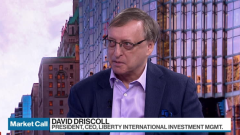Jul 2, 2024
Bankers Protest Congo’s Shareholding Rule as Being Too Onerous
, Bloomberg News

(Bloomberg) -- Democratic Republic of Congo’s banks are urging authorities to rethink requirements for lenders to diversify their shareholdings by as much as 45%, saying the regulation is impractical.
The order signed a year ago requires each bank to have at least four unrelated shareholders — including current owners — who hold a minimum of 15% each to spread risk. This means most of Congo’s banks would need to find multiple new, unique investors to buy a large chunk of their equity by 2026.
“It can’t work,” said Henry Wazne, chief executive officer of closely held Sofibanque SA, Congo’s fourth-biggest lender. “You have 15 banks. And if you cannot have the same shareholder in two banks, and if the shareholders need to have certain specifications, that means 45 new shareholders in banks, who don’t exist.”
Bankers have been seeking clarity from the central bank since the directive was released, but it has yet to officially respond. It didn’t provide comment to multiple text messages and a letter from Bloomberg.
Sign up here for the twice-weekly Next Africa newsletter
The directive is already complicating plans for new and current investors in the industry, despite the market being one of Africa’s most promising, according to bankers who asked not to be identified discussing a sensitive matter. Resource-rich Congo has 100 million people, an economy that grew 8.3% last year and a level of private lending that remains “very low,” according to the International Monetary Fund.
Decades of government mismanagement and conflict and worries about corruption in the country have slowed development of the industry.
“The banking sector doesn’t attract the highest valuations as it is, because of high regulation and risks,” Mustafa Rawji, CEO of family-owned Rawbank Sarl, Congo’s largest bank, told Bloomberg. “And large institutions are not really interested in taking minority stakes. They would rather have control.”
Rawji asked that the central bank “reconsider” the shareholding policy.
Listing Lenders
Currently, the regulation doesn’t make exceptions for publicly traded companies, which already have thousands of shareholders. Kenya’s biggest banks on the Nairobi Stock Exchange — Equity Group Holdings Plc and KCB Group Plc — bought stakes in three Congo lenders in the years before the directive was announced.
“There is an open dialogue with the regulator,” said Celestin Mukeba, managing director of EquityBCDC, in which Equity Group holds 77%. Congo’s government holds 15% and the International Finance Corp. is a minor shareholder. “We are listed. That is our argument.”
Congo could develop its capital market to allow people to buy shares in the banks, he said. “This would be one of the ways of solving the issue.”
Citigroup Inc., which has a small unit in Congo that clears most of the country’s dollar transactions, declined to comment.
You can follow Bloomberg’s reporting on Africa on WhatsApp. Sign up here.
--With assistance from William Clowes.
©2024 Bloomberg L.P.






